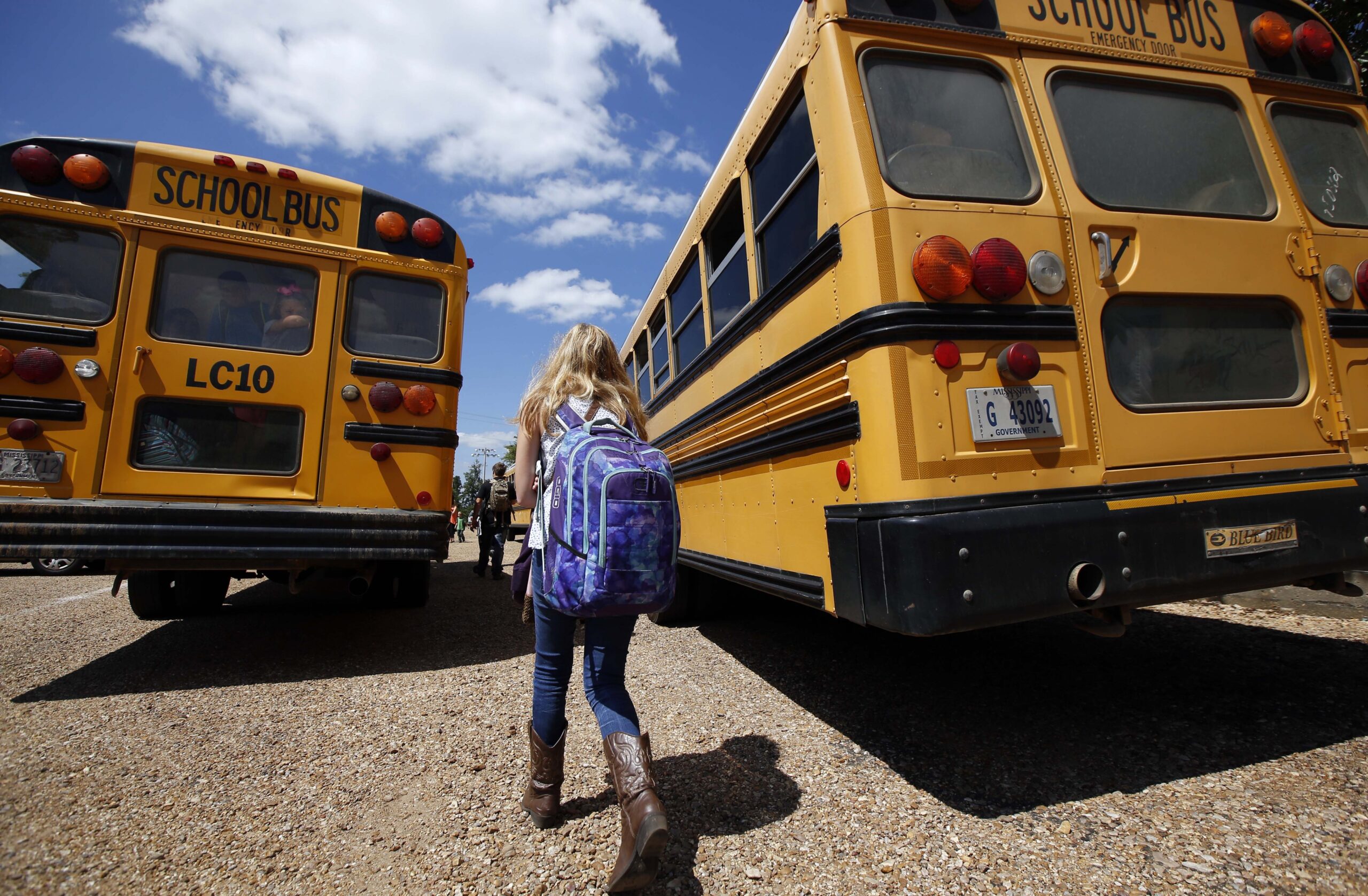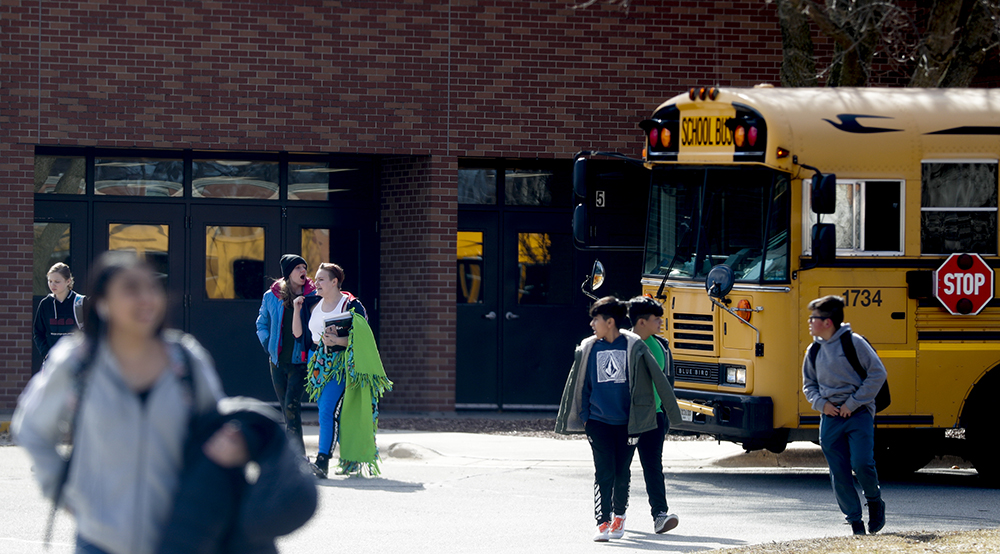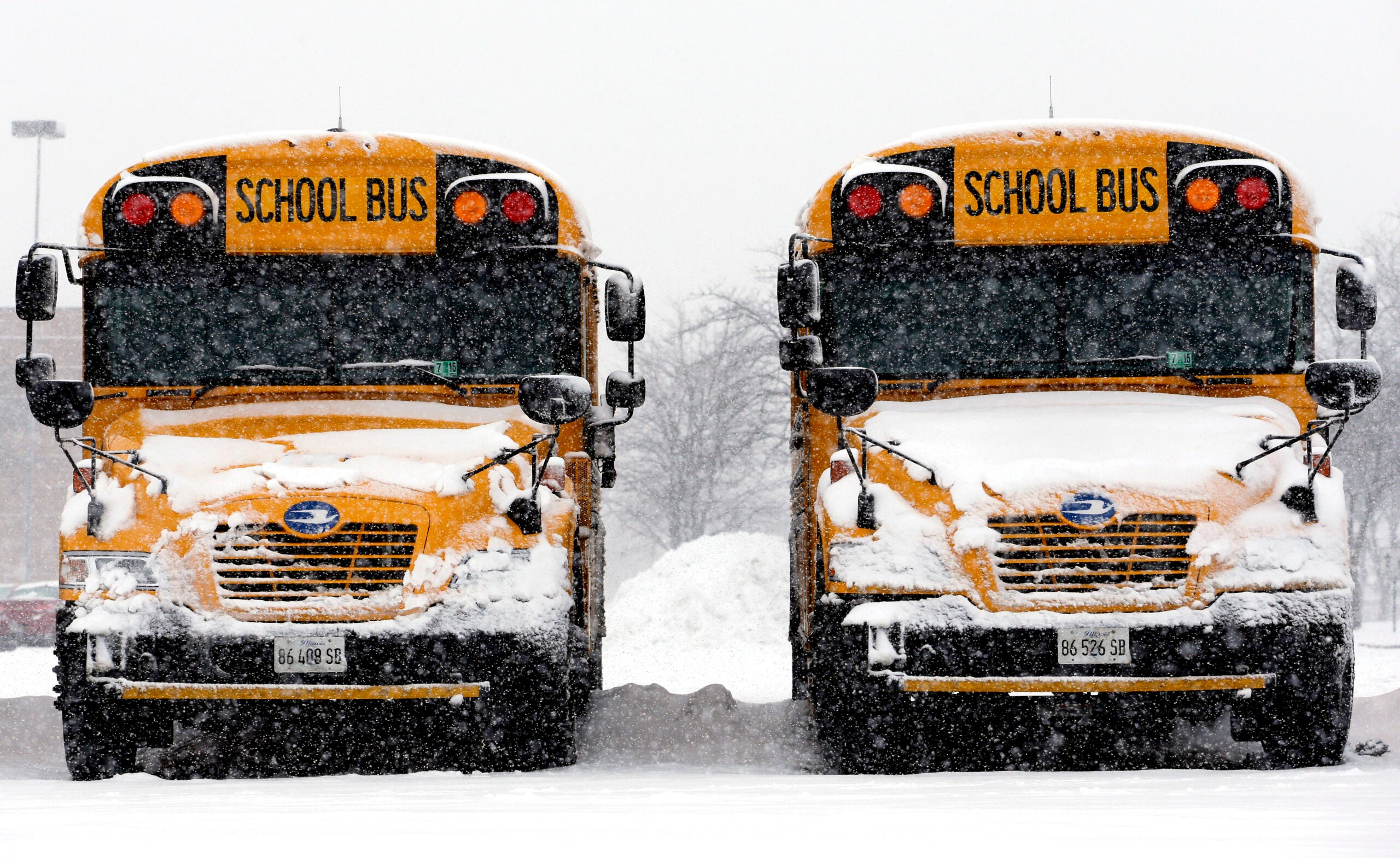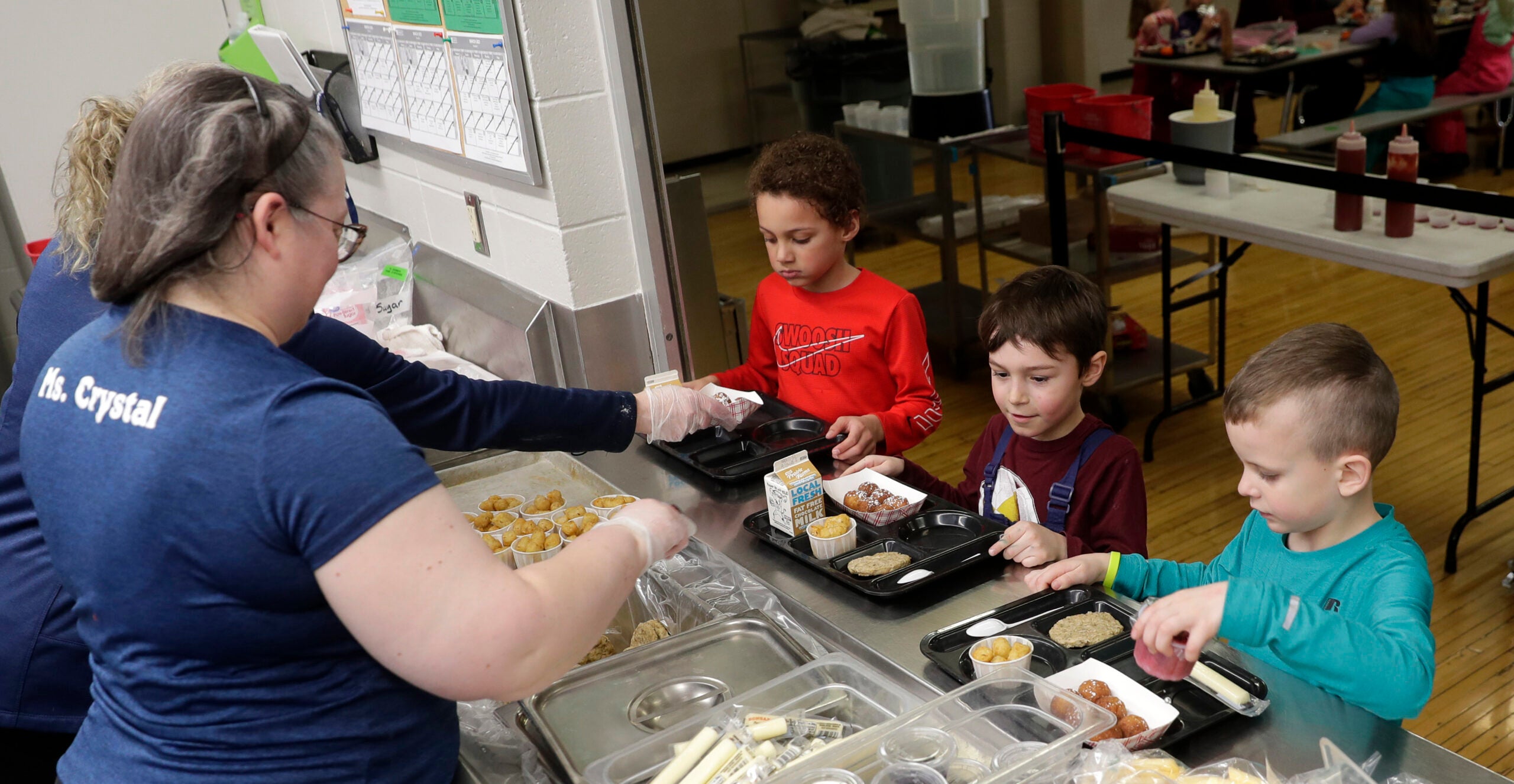Thirteen school districts in Wisconsin could get an extra dose of bad news if their referenda fail during next week’s election, due to a new state law.
The law, signed by Gov. Scott Walker earlier this month, authorizes low-spending school districts across the state to raise property taxes without getting voter approval.
Under the plan, any district that currently spends less than $9,100 per student could raise taxes incrementally over the next several years without seeking voter approval.
Stay informed on the latest news
Sign up for WPR’s email newsletter.
However, an exemption in the bill, championed by the governor, bars districts that have a failed referendum any time in the past three years from implementing the automatic tax increases.
Walker has said the exemption promotes accountability to taxpayers by preventing taxes from going up in communities where voters have rejected such moves in recent years.
But it also sets up a sticky scenario for 12 low-spending districts with referendums on the ballot next week.
Though they’re in line for the tax increases now, a failed referendum next week would push them out of eligibility.
Those districts are: Adams-Friendship, Almond-Bancroft, Benton, Ellsworth, Kiel, Manitowoc, Markesan, Merrill, Mondovi, Randall J1, Shullsburg and Westby.
If their referenda fail, those districts would not only miss out on whatever they’re asking voters to approve, but up to hundreds of thousands of dollars in new tax revenue authorized by the new law, according to an analysis by the Legislature’s nonpartisan budget office.
However, the law does set up a loophole for some low-spending districts with past failed referenda.
Under the law, a district with a failed referendum in the past three years can implement the automatic tax increases next year if they return to voters and have a successful referendum this year.
The Howard-Suamico School District is attempting to do just that.
The district had a failed referendum last year, but is trying again next week.
If voters approve Howard-Suamico’s $5.85 million referendum on Tuesday, the district will get those funds as well as the tax increases authorized by the state.
“There is a lot at stake,” said Damian LaCroix, superintendent of the district.
According to a state estimate, the additional tax revenue the district would get if their referendum is approved is worth up to $721,417.
“It would be significant for us, if we were eligible,” LaCroix said of the tax increase.
The superintendent said the district “desperately” needs the additional funding, which would help combat increasing class sizes.
“It negates our ability to provide the type and quality of experience that we want for our students,” he said of the average class size. “It makes it difficult for our teachers to meet the individual learning needs of those students as well.”
Fifteen additional school districts across Wisconsin also have referenda on the ballot on Tuesday.
Those districts, however, don’t qualify for the low-spending tax increase, because they spend more than $9,100 per student right now.
Those districts are Alma, Cambria-Friesland, Clayton, Delavan-Darien, Frederic, Gilman, Hustisford, Lacrosse, Maple, Necedah Area, New Lisbon, Prairie Farm, Vanders Area, Wheatland, and Yorkville.
If referenda in those communities fail, school there won’t shoulder any additional penalty or lose any other funding bump.
Wisconsin Public Radio, © Copyright 2025, Board of Regents of the University of Wisconsin System and Wisconsin Educational Communications Board.




